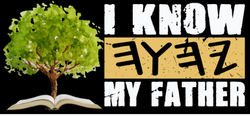Unveiling the Truth About Thanksgiving: What History Left Out
Watch the Full Video Lesson Here:
Introduction:
Thanksgiving is often celebrated as a warm and festive family holiday, but the truth behind its origins is far from cheerful. Beneath the surface of turkey dinners and gratitude lies a history of violence and loss. To understand the full picture of this holiday, we need to uncover the story that’s been left out of history books.
Here are our favorite bible study tools. Click the link here.
The Pilgrims' Journey: Seeking Freedom and Survival
In 1620, 102 Pilgrims embarked on a perilous voyage aboard the Mayflower, leaving England in search of religious freedom. These settlers weren’t just fleeing persecution—they were defying the authority of the Church of England. Their journey across the Atlantic was grueling, with illness and rough seas testing their resolve.
When they landed at Cape Cod, they entered a land scarred by earlier European expeditions. Disease had decimated the Native American population, leaving behind a fragmented and grieving community. To the Pilgrims, this seemed like divine providence. But this "new world" was already home to thriving Indigenous cultures, setting the stage for an inevitable clash of survival and beliefs.
Survival Through Indigenous Generosity
The Pilgrims' first winter was harsh, with half of them succumbing to the cold, disease, and starvation. It was the intervention of Squanto, a member of the Patuxet tribe, that changed their fate. Having been captured and enslaved by Europeans earlier, Squanto had learned English and agricultural techniques that he shared with the struggling settlers.
Squanto taught the Pilgrims how to plant corn, fish, and use the land sustainably. He also helped broker a fragile alliance between the Pilgrims and the Wampanoag tribe. The first Thanksgiving feast is often portrayed as a harmonious celebration of unity and gratitude. However, this narrative overshadows the growing tension as settlers encroached on Native lands, leading to broken promises and violent conflict.
The Brutal Reality: Celebrations Amidst Conflict
Thanksgiving’s history is tainted by the brutal realities of colonial expansion. One glaring example is the Pequot War of 1637, during which colonists massacred hundreds of Pequot men, women, and children. Shockingly, this atrocity was declared a "day of Thanksgiving" to celebrate military victory.
This dark chapter reveals how Indigenous lives were devalued in the settlers' pursuit of land and dominance. While modern Thanksgiving emphasizes gratitude and unity, its origins are rooted in a legacy of bloodshed and betrayal.
The Institutionalization of Thanksgiving: A Double-Edged Sword
In 1863, President Abraham Lincoln declared Thanksgiving a national holiday, encouraging Americans to reflect on gratitude even amid the Civil War. While this proclamation unified a fractured nation, it ignored the ongoing suffering of Indigenous communities. Lincoln’s government simultaneously expanded westward, displacing Native peoples and perpetuating violence.
Thanksgiving’s institutionalization cemented a narrative of harmony and prosperity while erasing the painful truths experienced by Indigenous populations. This sanitized version of history continues to obscure the holiday’s complex origins.
Rethinking Thanksgiving: A Step Toward Healing
Today, many are reexamining Thanksgiving, seeking to honor its complicated past while reshaping its meaning. True gratitude should go beyond a single day of indulgence. It’s about acknowledging the land’s original caretakers and recognizing the resilience of Indigenous peoples who continue to endure systemic challenges.
By understanding Thanksgiving’s origins, we can shift the focus to values like family, love, and respect for the Earth. Many advocate for separating the holiday from its historical roots, using it instead as a time for education, reflection, and reconciliation.
Conclusion:
Thanksgiving is more than a festive meal; it’s a reminder of our shared history and the need for understanding. By uncovering the truth behind the holiday, we can honor the pain and resilience of those affected. True gratitude involves not just celebrating but also striving for justice and healing.
Let’s move beyond the myths of Thanksgiving to create a culture of continuous gratitude, rooted in respect for all people and the land we share.

